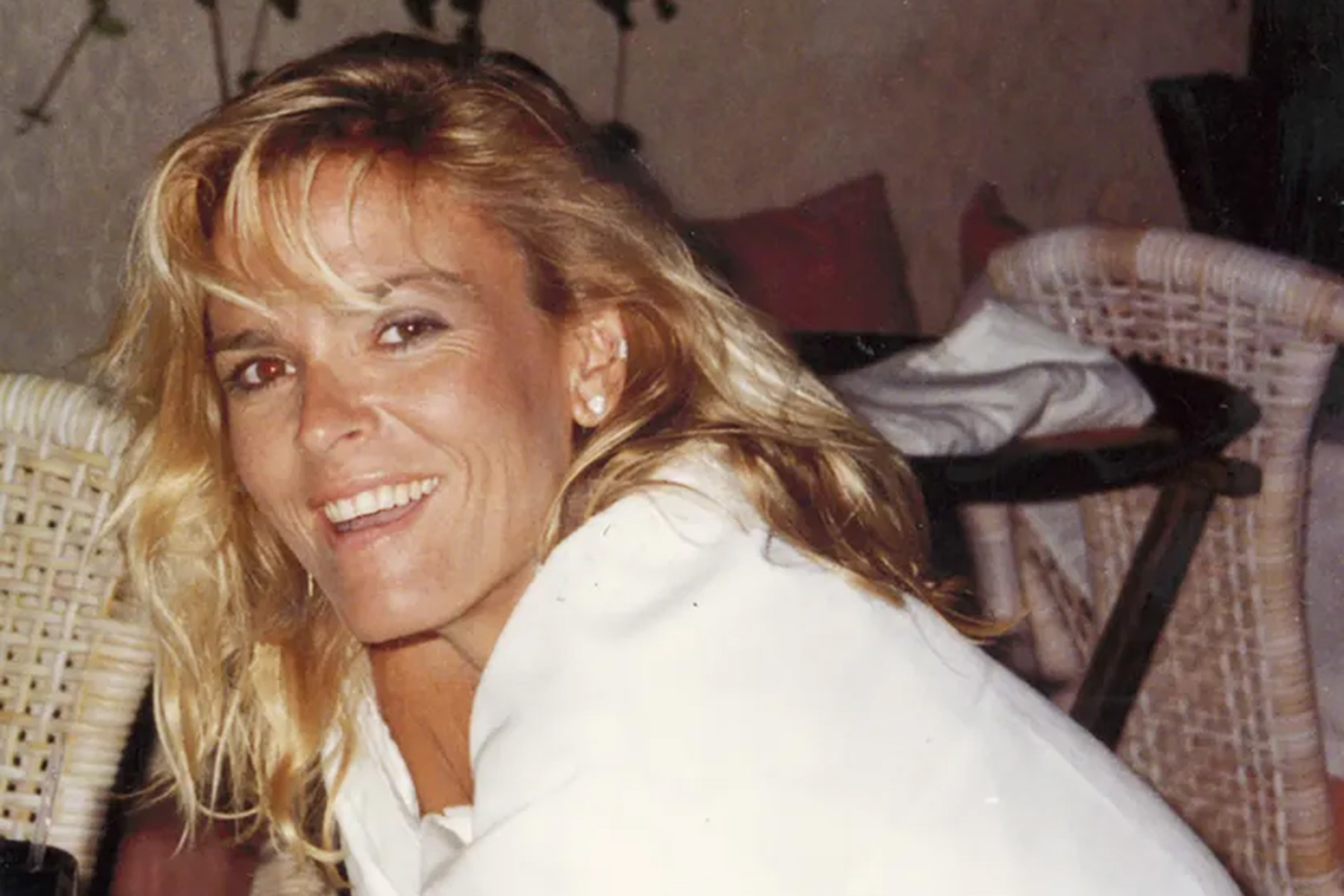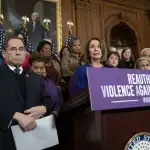The murders of Nicole Brown Simpson and her friend Ron Goldman led to one of the country’s most watched legal cases: The football superstar O.J. Simpson stood accused of killing his ex-wife and Goldman in a trial that sparked widespread debate about the power of celebrity, the inadequacies of the criminal justice system and the significance of his race.
Following news of O.J. Simpson’s death on Wednesday from cancer complications, experts revisited how the murders and subsequent trial reshaped discussions of domestic violence — and the ways racial dynamics complicated them.
Some said the country saw a major shift on a subject that had historically been framed as a private matter.
“When those murders happened, it really forced folks to take a look at domestic violence, what it really means to families, how dangerous it is,” said Charmine Davis, director of family wellness at the Jenesse Center, a domestic violence prevention and intervention nonprofit in Los Angeles. “It changed the way bills are passed and how politicians, police and the whole system looked at domestic violence.”
Others said the case primarily amplified a harmful reality that continues today in entertainment and beyond.
“I don’t think that any inroads have been made in terms of the criminal legal system, because I don’t think it’s possible,” said Myriam Gurba, author of the book “Creep: Accusations and Confessions,” which includes essays about gendered violence. “I know that the criminal legal system does not exist to manufacture justice for battered women. I believe that the purpose of a system is what it does.”
The legacy of this case — however inconsistent it may be — advanced national conversations that were rarely visible at such widespread levels.
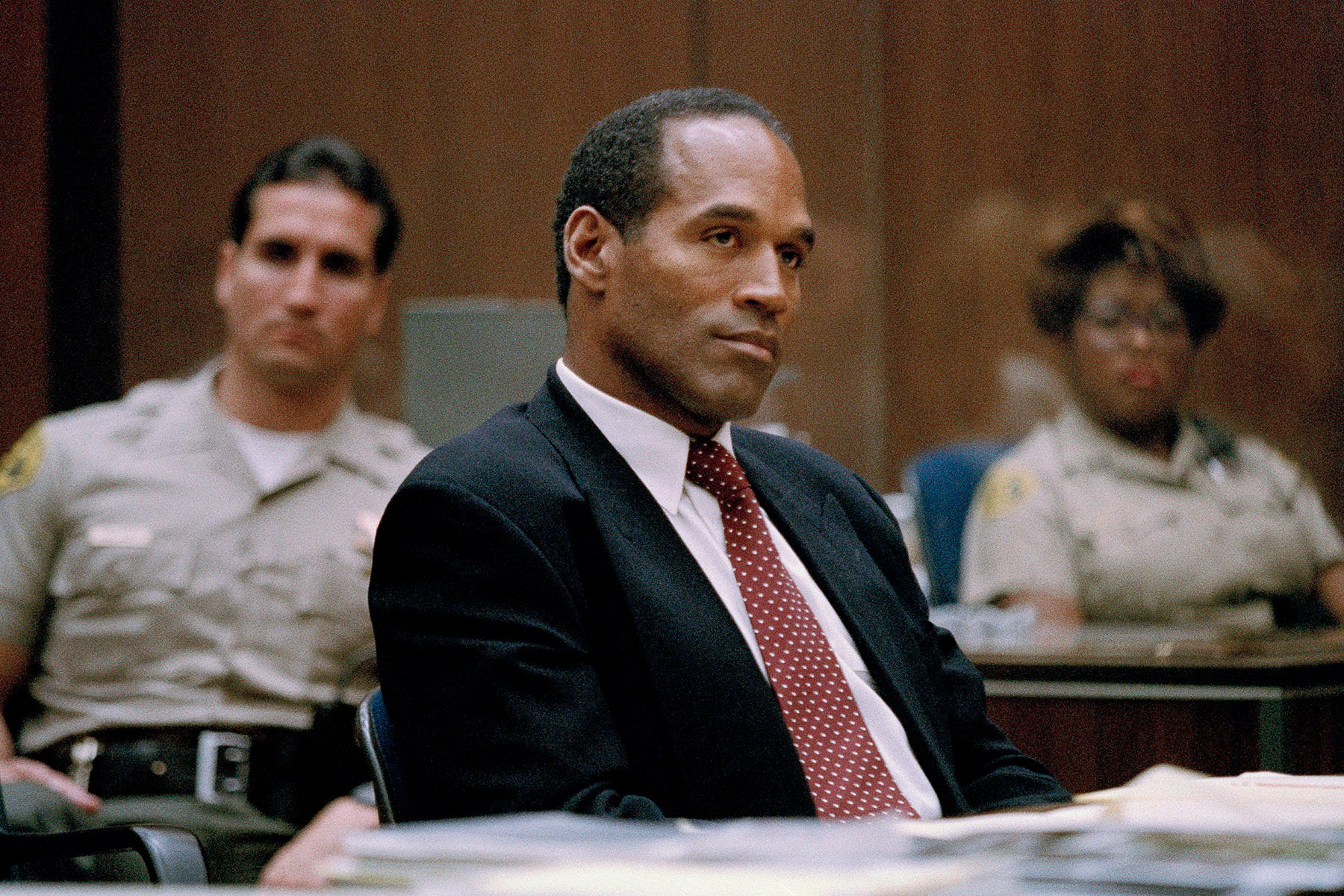
Just months after the June 12, 1994, murders of Brown Simpson and Goldman, Congress passed the Violence Against Women Act (VAWA). The law stands out as the first comprehensive federal legislation designed to stop battery, sexual assault and other forms of violence targeting women. For years, advocates had unsuccessfully pushed to get the law enacted. The awareness Brown Simpson’s murder raised about intimate partner violence helped to get VAWA much-needed backing from lawmakers, supporters of the legislation said.
More broadly, advocates reported at the time that the number of donations to battered women’s shelters and other women’s organizations rose nationwide. The number of calls to shelters also increased, indicating that more women were comfortable coming forward about their abuse.
After her murder, the public learned the extent of the abuse Brown Simpson endured. She stored items in a safe deposit box at a bank: It included three photos of herself with a bruised, swollen face, apology letters from Simpson admitting the abuse, a journal that tracked Simpson’s stalking, and newspaper clips from a night in 1989 when she was hospitalized and the police were called. It appeared to be a trail of evidence laid out in case she was killed. Prosecutors discovered the box six months after Brown Simpson’s murder.
Angela Hattery, professor of women and gender studies at the University of Delaware and co-director of its Center for the Study & Prevention of Gender-Based Violence, said that the Simpson trial was a missed opportunity. While the nation debated Simpson’s guilt or innocence, it overlooked the signs of intimate partner violence that his wife had reported before her murder.
“So when we think about the warning signs, especially for progressing to lethal violence, the absolute top early warning sign is strangulation,” Hattery said, referring to reports that Brown Simpson had a handprint on her neck after once calling police to protect her from her ex-husband. “Many domestic violence homicides are preceded by strangulation.”
Brown Simpson and her family members also indicated that her ex-husband had stalked her and isolated her, at times, from friends and relatives. These are also warning signs of impending lethal violence.
“Also at the top of the list is jealousy,” Hattery said. “He was jealous. He flew into a rage, and she was murdered, whether he did it or he had someone else do it.”
On October 3, 1995, a Los Angeles jury found him not guilty of murder — a conclusion that outraged Brown Simpson’s supporters due to the evidence pointing at her ex-husband. Fans of Simpson celebrated the verdict. Although he hadn’t played competitive football since 1979 after career highs, including the 1973 Most Valuable Player award as a Buffalo Bill and a 1968 Heisman Trophy as a University of Southern California Trojan, the running back had channeled his fame as an athlete into roles as an actor and sports commentator. This made him relevant to a younger generation.
“O.J. Simpson was a character,” said Earl Smith, professor of women and gender studies at the University of Delaware. “He was the first celebrity athlete. Nobody commanded that much attention in terms of getting paid to sell products. Everybody loved him. He had that kind of personality.”
For critics of Simpson and many survivors of gender-based violence, Simpson’s acquittal sent a painful message. Advocates and attorneys have previously said it was clear that some jurors did not understand the connection between domestic violence and Brown Simpson’s murder. Gurba said the outcome of the case and the discussion of the abuse was “instructive” for her as a teenage girl: These taught her that she would not be believed and could also be killed.
Underlying the virality of the case were the inescapable racial dynamics that shape the U.S. court system and the criminalization of Black men. Simpson being a Black man and Brown Simpson being a White woman evokes associations between Black men and danger to women that have repeated throughout the country’s history.
Three years before Simpson’s acquittal, a Los Angeles-area jury found a group of White officers not guilty of assaulting Rodney King, a Black motorist they had been videotaped beating during a police stop. In 1991, a Los Angeles judge gave a Korean-American shopkeeper probation instead of prison time for fatally shooting Black teenager Latasha Harlins in her store. Both of these events intensified the racial tensions that ignited in the 1992 Los Angeles rebellion.
This traumatic history contributed to what law professor Katheryn Russell-Brown refers to as “Black protectionism.”
“I came to think about it as the way that people in the Black community sort of gave O.J. Simpson a collective racial hug, if you will,” said Russell-Brown, who teaches at the University of Florida Levin College of Law. “There was this idea that, ‘One of us is out there in front of the firing squad; we’ve got to embrace him.’” She added that this was not a mindset that all Black people had.
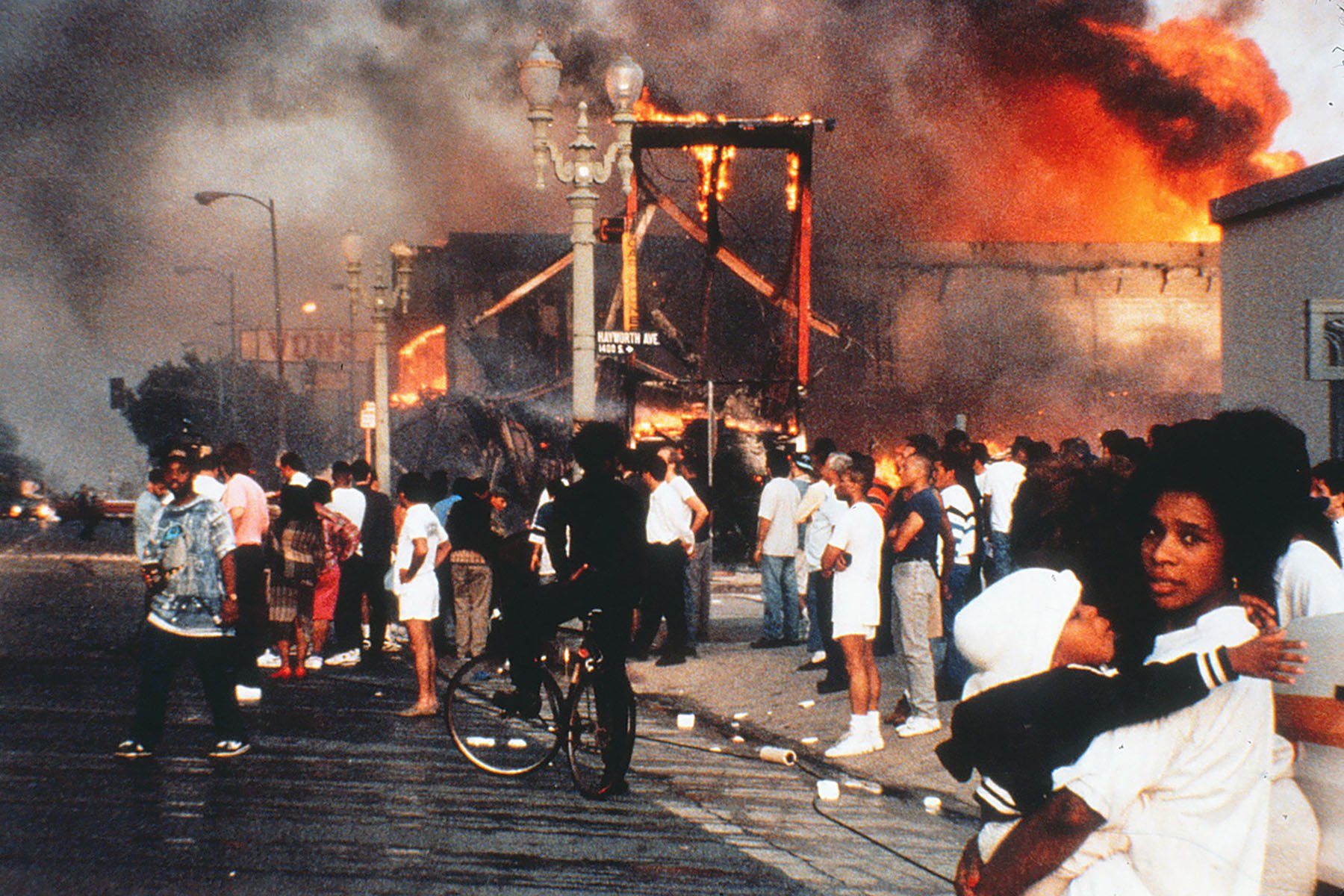
Though media coverage of the Simpson trial widely portrayed Black Americans as being supportive of him, Smith — co-author of “Gender, Power and Violence: Responding to Sexual and Intimate Partner Violence Today” with his colleague Hattery — said that Black people had a complicated relationship with Simpson and that generalizations about the community should be avoided.
“If you remember, Black people had said, ‘Well O.J. is not one of us. He’s not Black. He’s transitioned out of being a Black guy because of who he is, because of the women he dated, because of the women he married, because of where he lives, because of his notoriety,’” Smith said. “So, it couldn’t have been just Black people being happy that O.J. got off.”
Even with this nuance, experts say race factored in other ways. Historically, violence against White women receives outsized media attention. White women are also depicted as more sympathetic victims, while women of color are portrayed as complicit in the violence against them.
The voices of Black women were sorely missing from the conversations about Simpson, Hattery said. Prior to Brown Simpson, the football legend was married to a Black woman.
“Nicole was White, but I wonder if there were Black women who had also been abused by him and never could have told the police because that would have been airing the dirty laundry of the Black community,” Hattery said. If he had abused a Black woman, she likely would not have called police because “she’d be inviting the system into her home that she knows is going to mistreat her partner.”
Society should have been capable of discussing that racism in the legal system hurts Black men and that Black men often harm Black women with impunity.
“We were never able to complicate the conversation enough to say, ‘It’s not only about race, this is a gendered crime,’” Hattery said.
If Brown Simpson had been Black instead of White would her murder have led to a media frenzy? Davis doubts it.
“I see those murders all the time, and they’re not televised,” she said of Black women victims, though she stressed that domestic violence affects people of all racial and socioeconomic backgrounds. “African-American women do not have the resources that others have, and we have a harder time getting help when we need it. If he had killed an African-American woman, I don’t know that the country would have been outraged.”
Black women were nearly three times as likely as White women to be murdered by a man in 2020, according to the Violence Policy Center. Although that year, Black women made up 14 percent of women in the United States, they represented 31 percent of women killed by men in incidents involving one victim and one perpetrator. Ninety percent of Black women who lost their lives in such incidents knew their killers.
While the public, policymakers and law enforcement have a better understanding of domestic violence than they had three decades ago, experts told The 19th that progress remains slow.
Support and protection for men accused of harming women continues and is reflected in a number of high-profile cases — from former President Donald Trump, to singer R. Kelly, to rapper Tory Lanez and beyond.
“I think that for celebrity men who perpetrate femicide, the femicide becomes part of their legend,” Gurba said. “This might sound really strange, but I think that among some people they are admired for having committed murder; they’re admired for having escaped accountability.”
In the political space, nonprofits that serve survivors, such as the Jenesse Center, have to constantly lobby politicians for funding to provide transitional housing and other services, Davis said. Moreover, survivors who call law enforcement for help too often have their children removed from their homes and placed into the child welfare system.
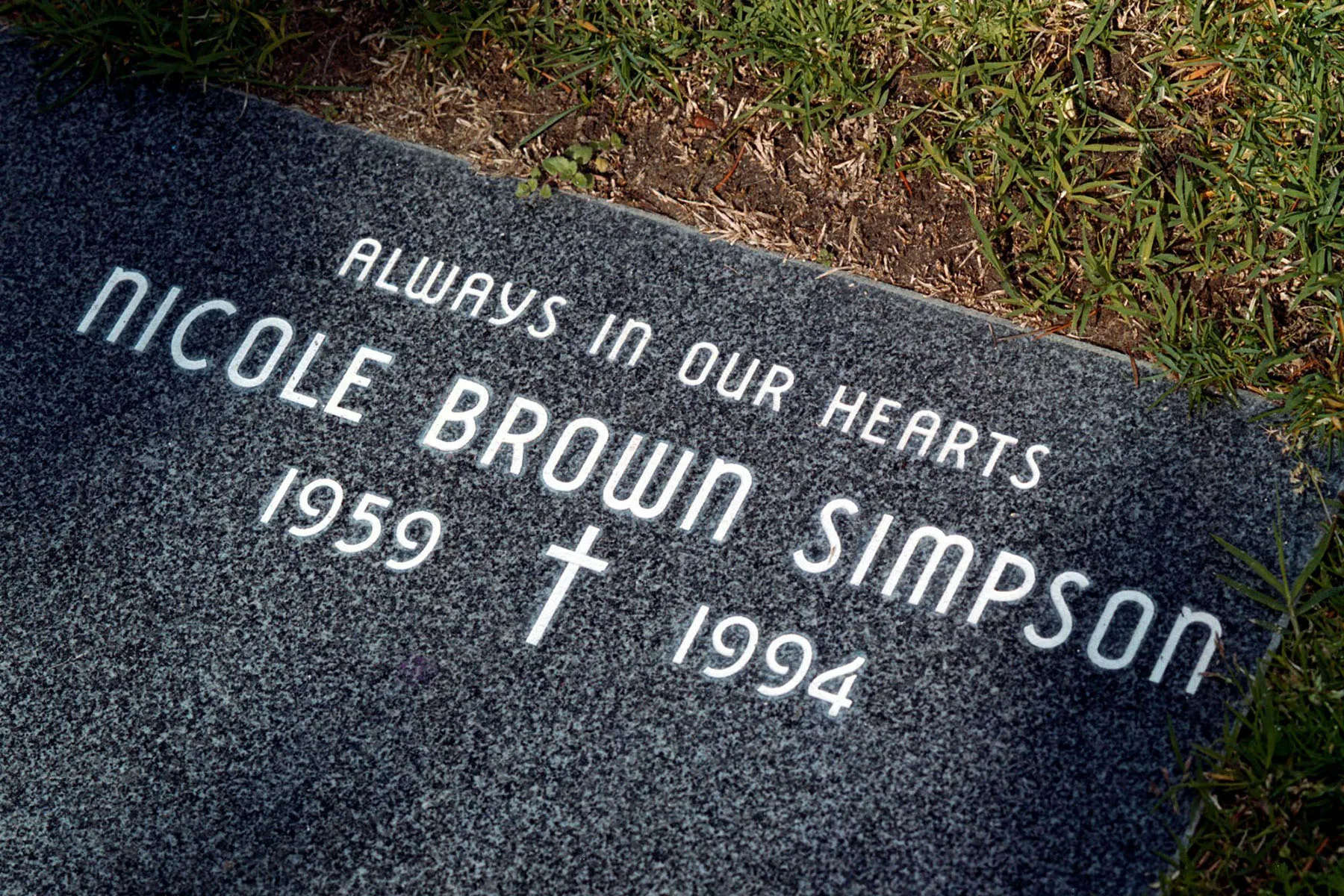
The Jenesse Center primarily serves women of color, and Davis — who has a doctorate in psychology — said clients have worried that a 911 call for help will lead to their partners dying at the hands of the authorities. Others simply don’t want their children, particularly their sons, to risk a police encounter. Many women who leave domestic violence situations without getting the support they need become unhoused, but there is little recognition that women living on the streets are often survivors.
In the college and professional sports communities, officials still hesitate to take intimate partner violence seriously, so it continues to be a problem, Smith said. Together, he and Hattery manage a database that records incidents of gender-based violence in sports. It includes nearly 450 cases of intimate partner violence specifically, according to Smith. Jovan Belcher, Ray Rice and Kareem Hunt are just a few of the NFL stars who have attacked or even killed women over the past 15 years.
“One of the things you learn when you deal with sports people at the university level, at the professional level, is the last thing they ever want to talk about is domestic violence,” Smith said. “We’ve interviewed women, especially on college campuses, where they’ve been offered money to just go away, especially if one of the athletes was a big name. There’s always a back door for high-profile athletes.”
Although Simpson was acquitted of double murder, he will never escape his association with that crime — even in death, Smith said.
“He was a fantastic athlete,” Smith said. “I don’t think people are going to remember him as a fantastic athlete. I think he’s going to be remembered as having something to do with the murder of those two people.”
If you or a loved one are a victim of domestic violence, call the National Domestic Violence Hotline at 800-799-7233 for assistance.
